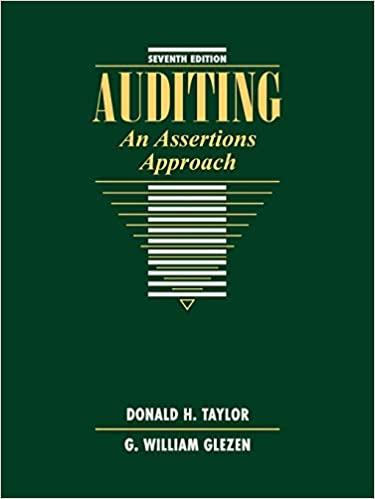For each of the following scenarios, indicate whether action by the indicated party could be successfully brought
Question:
For each of the following scenarios, indicate whether action by the indicated party could be successfully brought against the auditor for
(a) ordinary negligence under common law,
(b) gross negligence under common law,
(c) violation of the Securities Act of 1933,
(d) violation of the Securities and Exchange Act of 1934, or
(e) violation of federal) criminal statutes. Give reasons for your answers. (İ some cases more than one might be appropriate.)
1. A company with publicly-traded securities omitted an important footnote to its financial statements. The auditor knew of and accepted the omission. Third parties suffered losses because they relied on the statements in making investment decisions. \(\checkmark\)
2. Company A, a nonpublic company, applied for a loan from a local bank. The bank re1 quired an audit of the financial statements of Company \(\mathrm{A}\) as a basis for making the loan. The auditor knew that the audit was being performed solely for the bank. The auditor did not confirm accounts receivable or observe the taking of inventory. (Each account balance was material.) Company A subsequently defaulted on the loan, and the bank suffered a loss.
3. The same situation as in (2) except that the auditor overlooked material errors while confirming accounts receivable and observing the taking of inventory.
4. An auditor of a nonpublic company aided a client in writing and using fraudulent computer programs. The company subsequently entered bankruptcy, and the stockholders incurred substantial losses.
5. A third-party investor discovered that the investee company (nonpublic) materially understated a contingent liability that was disclosed in its financial statements. The company declared bankruptcy when the actual liability had to be paid. The auditor considered the amount of the contingent liability disclosed in a footnote to be an acceptable amount and the footnote to be a proper disclosure. The company's stockholders incurred substantial losses.
Step by Step Answer:

Auditing An Assertions Approach
ISBN: 9780471134213
7th Edition
Authors: G. William Glezen, Donald H. Taylor





